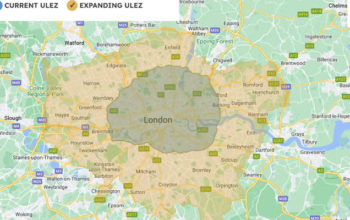Embarking on a career as a dispute resolution solicitor offers a dynamic and rewarding path in the legal field. For those passionate about resolving conflicts and advocating for justice, this role can be both fulfilling and challenging. In this guide, we will delve into the intricacies of a dispute resolution solicitor’s job, explore essential skills and qualifications, and provide practical tips to help you secure a position in this exciting area of law.
What Does a Dispute Resolution Solicitor Do?
A dispute resolution solicitor specializes in managing and resolving conflicts between parties, often outside the courtroom. Unlike litigation-focused solicitors, dispute resolution solicitors employ various methods to achieve settlements and resolve disputes effectively. They work on a range of issues, including commercial disputes, family disagreements, and property conflicts.
Key Responsibilities
Dispute resolution solicitors perform a variety of tasks that involve different stages of conflict resolution. Here are some core responsibilities:
- Negotiation: Engage in discussions between parties to reach a mutually acceptable solution.
- Mediation: Facilitate communication and compromise between disputing parties to help them find common ground.
- Arbitration: Represent clients in arbitration proceedings where an impartial third party makes binding decisions.
- Drafting Agreements: Create and review legal documents, including settlement agreements and contracts.
- Client Consultation: Provide legal advice and guidance to clients throughout the dispute resolution process.
Essential Skills for a Dispute Resolution Solicitor
To thrive in the role of a dispute resolution solicitor, you need a combination of specialized skills and general competencies. Here’s a closer look at what’s required:
Strong Communication Skills
Effective communication is crucial. Dispute resolution solicitors must articulate complex legal concepts clearly to clients and negotiate effectively with opposing parties. Both verbal and written communication skills are essential.
Analytical Thinking
Being able to analyze complex situations, identify key issues, and develop strategic solutions is vital. Analytical thinking helps solicitors evaluate evidence and craft persuasive arguments.
Emotional Intelligence
Handling disputes often involves managing emotions and navigating sensitive issues. Emotional intelligence allows solicitors to empathize with clients, understand opposing perspectives, and maintain composure under pressure.
Negotiation Skills
Since negotiation is a significant part of dispute resolution, solicitors must possess strong negotiation skills. This involves persuading parties to reach an agreement that benefits everyone involved.
Legal Expertise
A solid understanding of relevant laws and regulations is necessary. This includes knowledge of contract law, property law, family law, and other areas depending on the focus of the disputes you handle.
How to Become a Dispute Resolution Solicitor
Pursuing a career as a dispute resolution solicitor requires a clear educational and professional path. Here’s a step-by-step guide to help you navigate this journey:
1. Obtain a Law Degree
Start by earning a law degree from a recognized institution. This provides a foundational understanding of legal principles and practices essential for any legal career.
2. Complete the Legal Practice Course (LPC)
After obtaining your law degree, enroll in the Legal Practice Course (LPC). This course equips you with practical skills and knowledge relevant to your role as a solicitor.
3. Gain Relevant Experience
Experience in dispute resolution can significantly enhance your career prospects. Look for internships or clerkships with firms specializing in dispute resolution to gain hands-on experience.
4. Secure a Training Contract
A training contract with a law firm provides practical experience and prepares you for the role of a solicitor. During this period, focus on gaining experience in dispute resolution.
5. Qualify as a Solicitor
Once you complete your training contract, you can apply for admission to the roll of solicitors. Successfully passing the required assessments and fulfilling all criteria will allow you to practice as a qualified solicitor.
6. Specialize in Dispute Resolution
After qualifying, you may choose to specialize in dispute resolution by working in firms or departments that focus on this area. Continuous professional development and gaining specialized certifications can further enhance your expertise.
Tips for Success in a Dispute Resolution Solicitor Role
Succeeding in the role of a dispute resolution solicitor involves more than just meeting qualifications. Here are some practical tips to help you excel:
Build a Strong Network
Networking plays a crucial role in any legal career. Connect with professionals in the field, attend industry events, and join relevant associations. A strong network can provide support, guidance, and opportunities for career advancement.
Stay Updated on Legal Trends
The legal landscape is constantly evolving. Stay informed about changes in laws and regulations related to dispute resolution. Regularly read legal journals, attend seminars, and participate in continuing education to keep your knowledge current.
Develop Strong Organizational Skills
Managing multiple cases simultaneously requires excellent organizational skills. Develop systems to keep track of deadlines, documentation, and client communications. This will help you stay on top of your workload and provide the best service to your clients.
Cultivate Resilience
Dispute resolution can be challenging and sometimes stressful. Cultivate resilience to handle setbacks and difficult situations effectively. Maintaining a positive attitude and seeking support when needed can help you navigate the pressures of the role.
Focus on Client-Centered Solutions
Always prioritize your clients’ needs and interests. Tailor your approach to each client’s unique situation and work towards solutions that align with their goals. Providing personalized service can build trust and strengthen client relationships.
Last Words
Becoming a dispute resolution solicitor involves a blend of education, practical experience, and personal skills. By understanding the role’s responsibilities, developing essential skills, and following the steps to enter the profession, you can pave a successful career path. Embrace the challenges and opportunities this dynamic field offers, and you’ll find it to be a rewarding journey of advocating for fair and effective solutions.
Whether you’re just starting out or looking to advance your career, staying committed to professional growth and client-centered practices will set you on the path to success as a dispute resolution solicitor.



